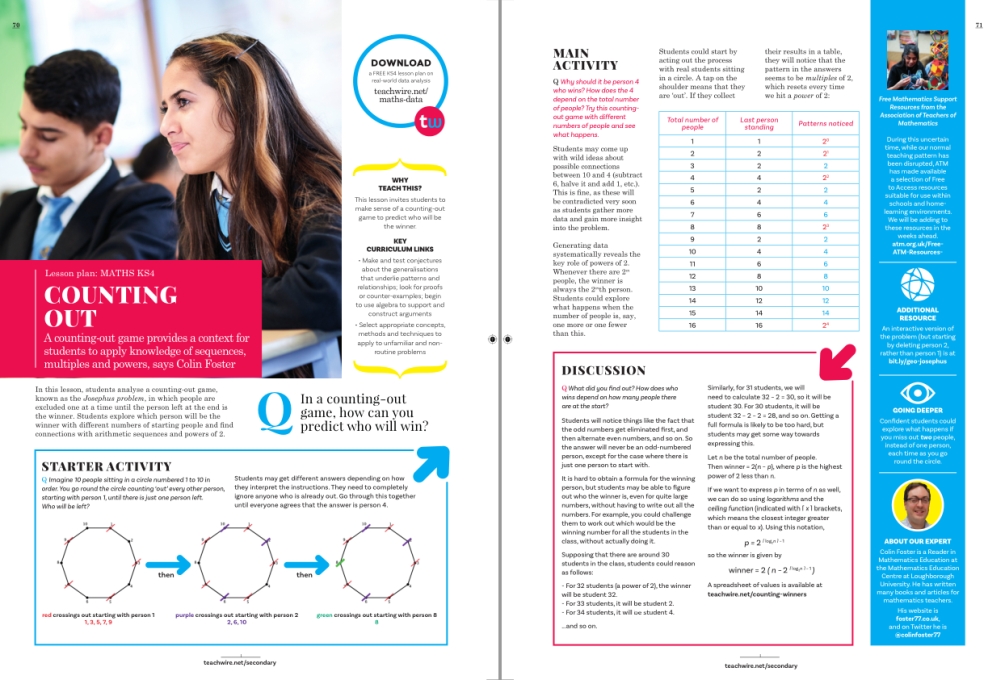A counting-out game provides a context for students to apply knowledge of sequences, multiples and powers, says Colin Foster
In this lesson, students analyse a counting-out game, known as the Josephus problem, in which people are excluded one at a time until the person left at the end is the winner. Students explore which person will be the winner with different numbers of starting people and find connections with arithmetic sequences and powers of 2.
Why teach this?
This lesson invites students to make sense of a ‘counting out’ game to predict who will be the winner.
Key curriculum links
• Make and test conjectures about the generalisations that underlie patterns and relationships; look for proofs or counter-examples; begin to use algebra to support and construct arguments
• Select appropriate concepts, methods and techniques to apply to unfamiliar and non- routine problems
Browse our list of GCSE maths games.














